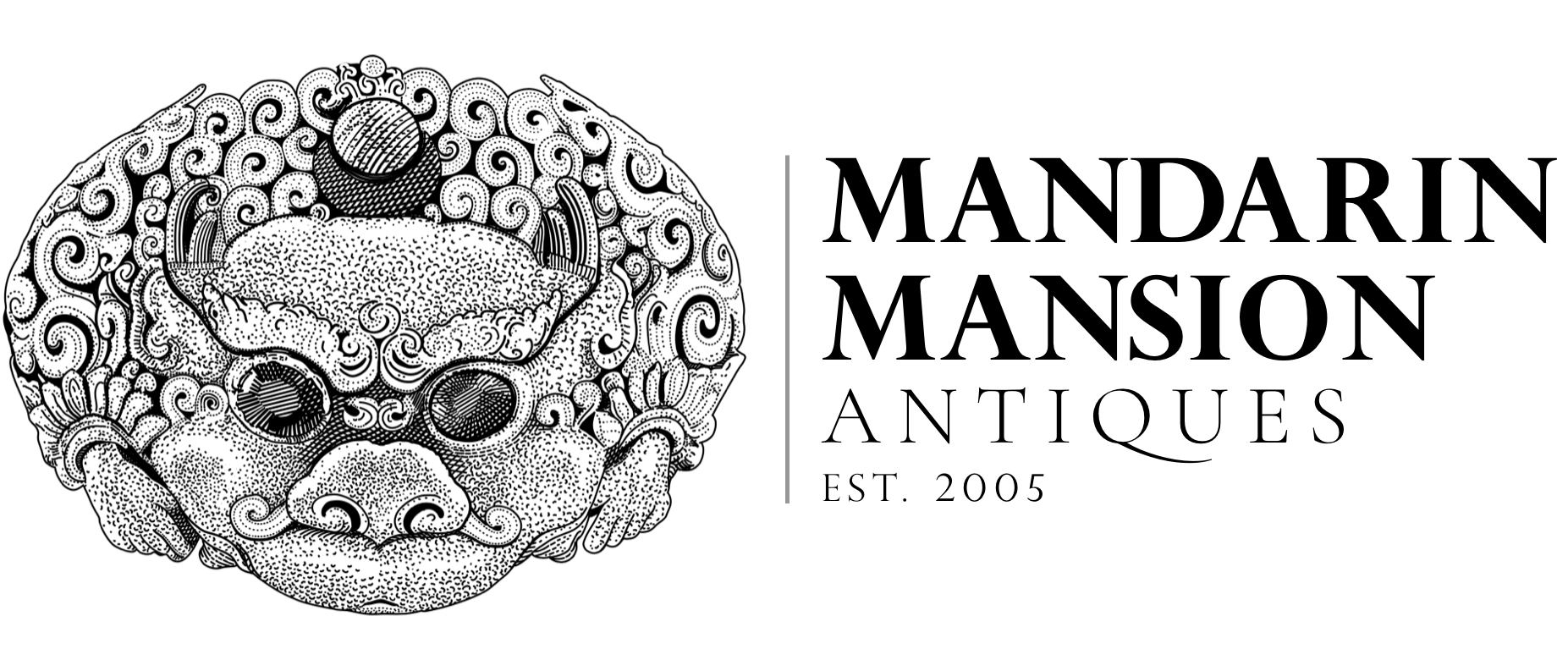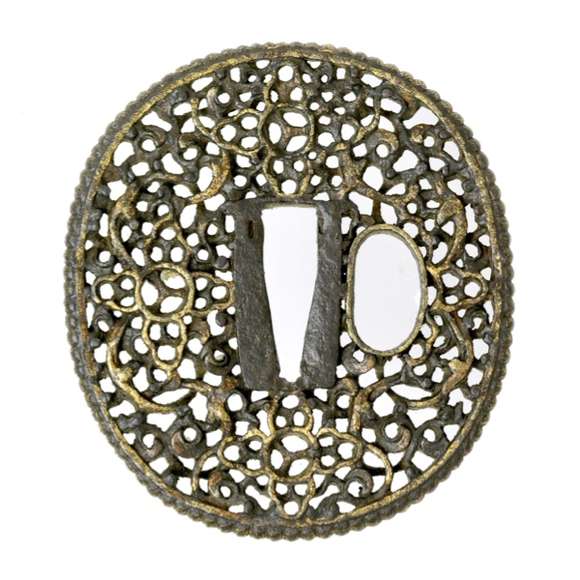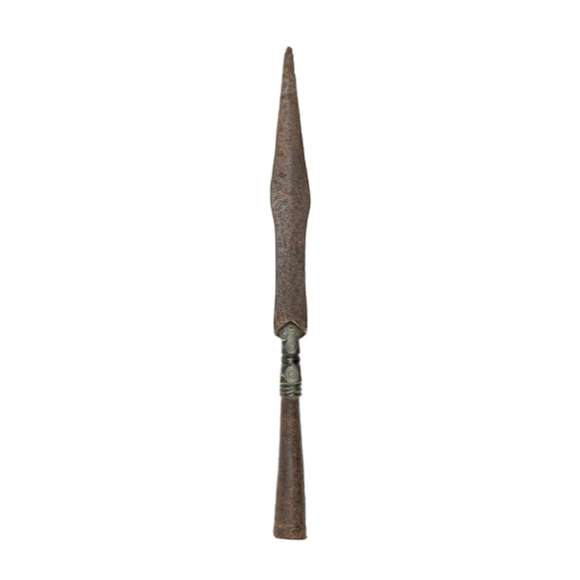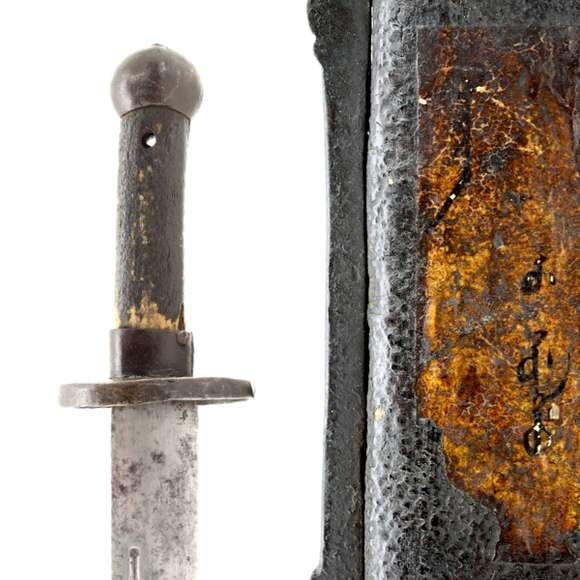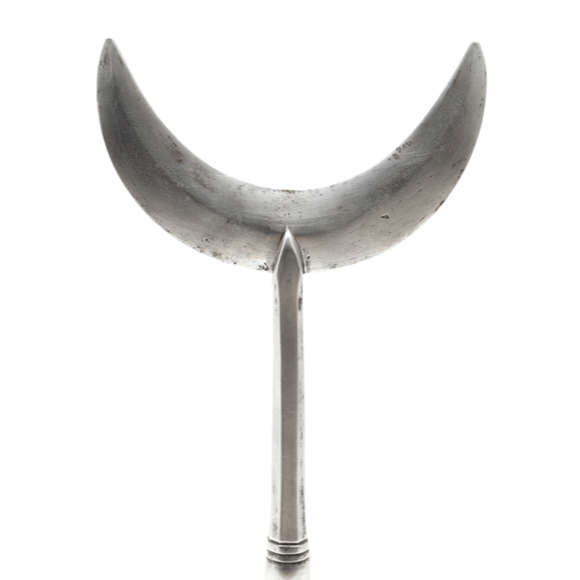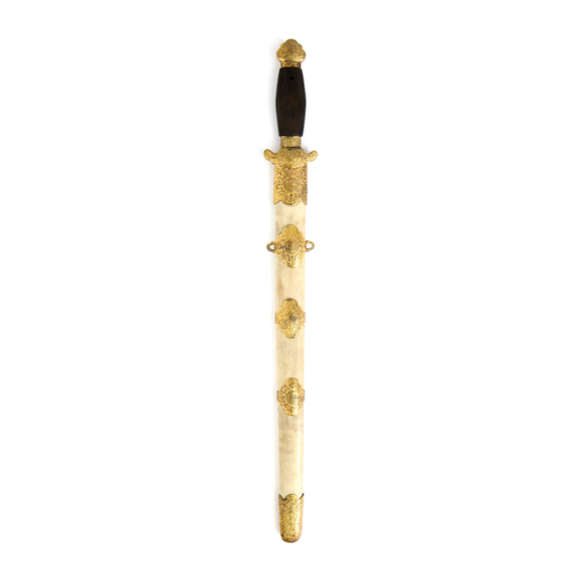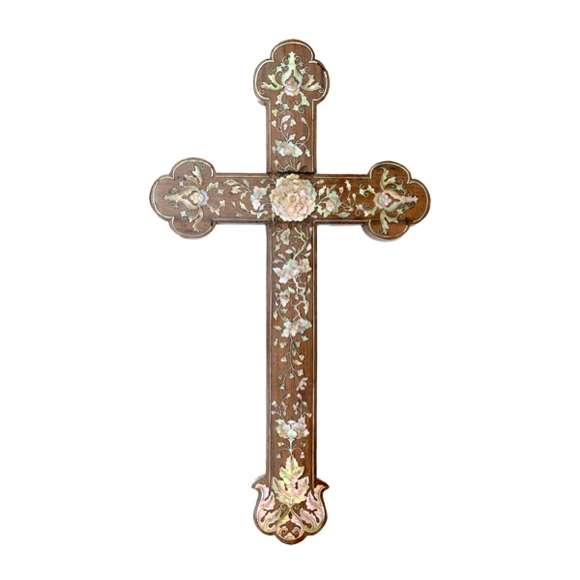Language: Mandarin Chinese
Source: Classical literature
Description
Dāobǎ dǐngshù (刀把頂束) means "saber pommel".1 The pommel is traditionally peened over the tang.
An alternative word used is sēnggōng mào (僧宮帽) or "monk's cap", referring to the shape in profile.2
For a complete overview, see: A Chinese saber glossary.
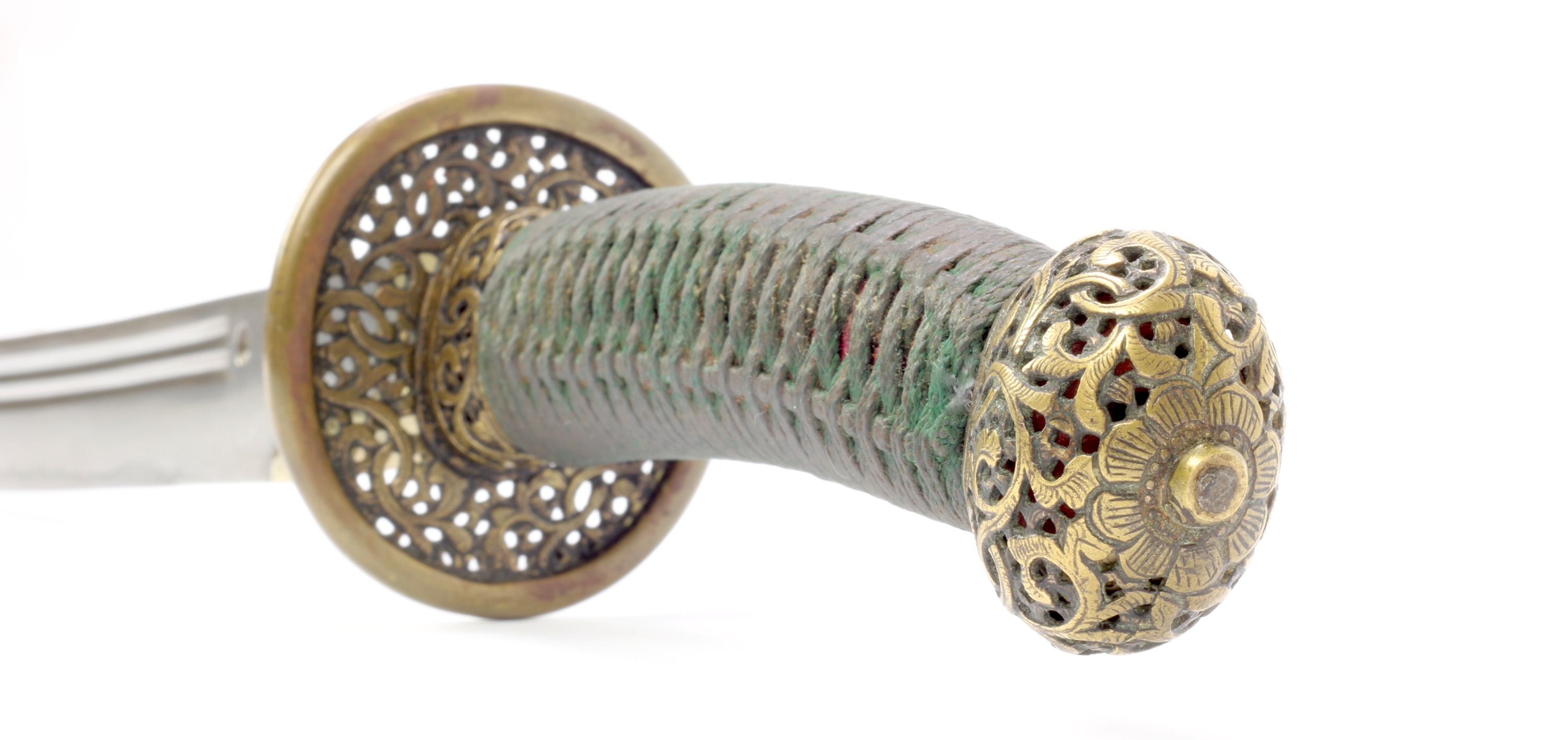
A Chinese saber pommel of the round style. Late 18th / early 19th century.
Notice the peened tang end.
References
1. Tongwen Guanghui Quanshu (同文廣彙全書) or "Enlarged and complete dictionary" of 1704. A Qing imperial dictionary in Chinese and Manchu, each entry double checked and approved by the Kangxi emperor.
2. Qinding Gongbu Junqi Zeli (欽定工部軍器則例) or "Imperial regulations and precedents on weapons and military equipment by the Ministry of Public Works", 1813. Chapter 36.
